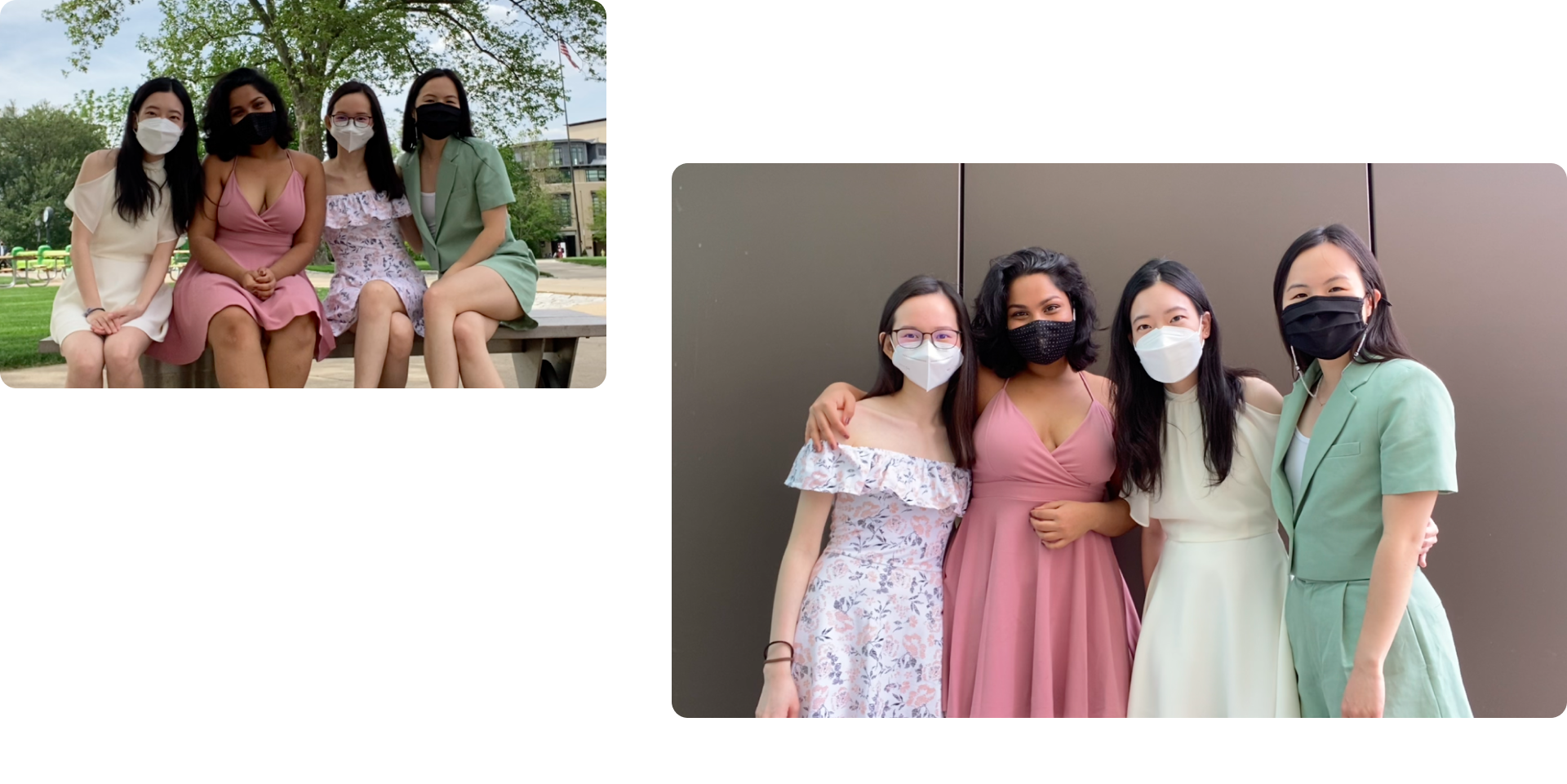We collectively reviewed roughly 15 pieces of academic literature on Motivational Interviewing and active reflection. The two Highmark Health MI training sessions I observed also provided valuable insights into the status quo.
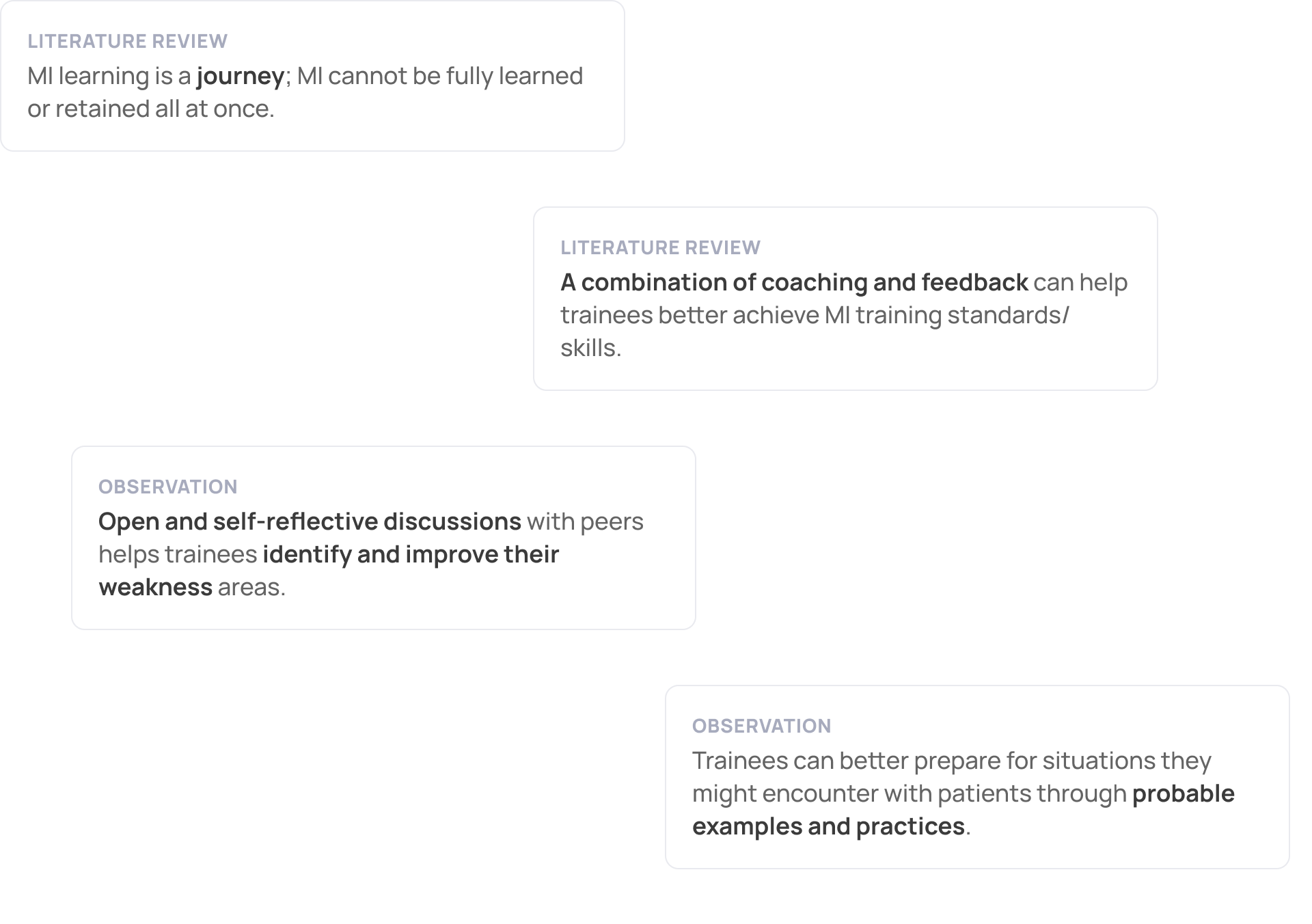
We then interviewed 6 MI Trainees and 6 MI Trainers who are members of MINT to learn more about MI learning techniques and the effects of MI.
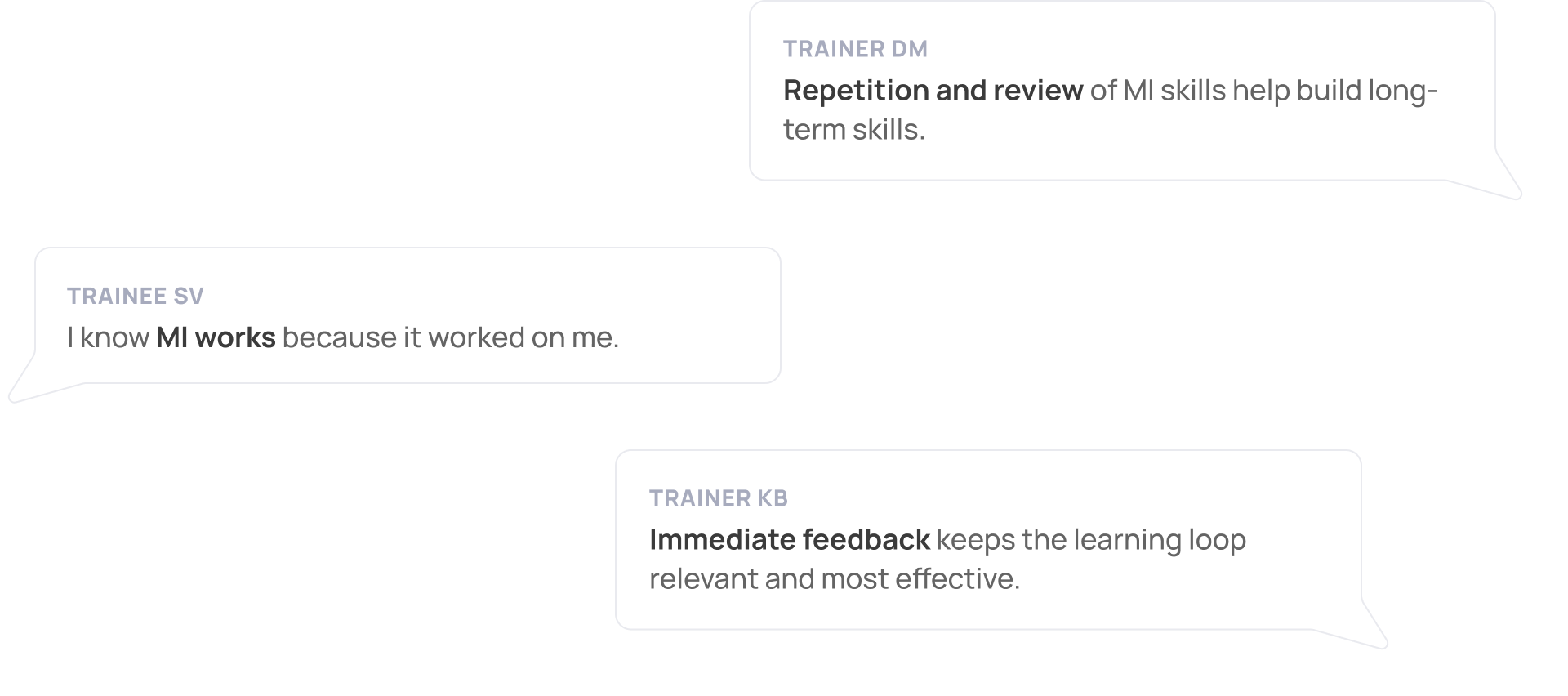
We synthesized our findings through an affinity diagram, ending with four main groups.
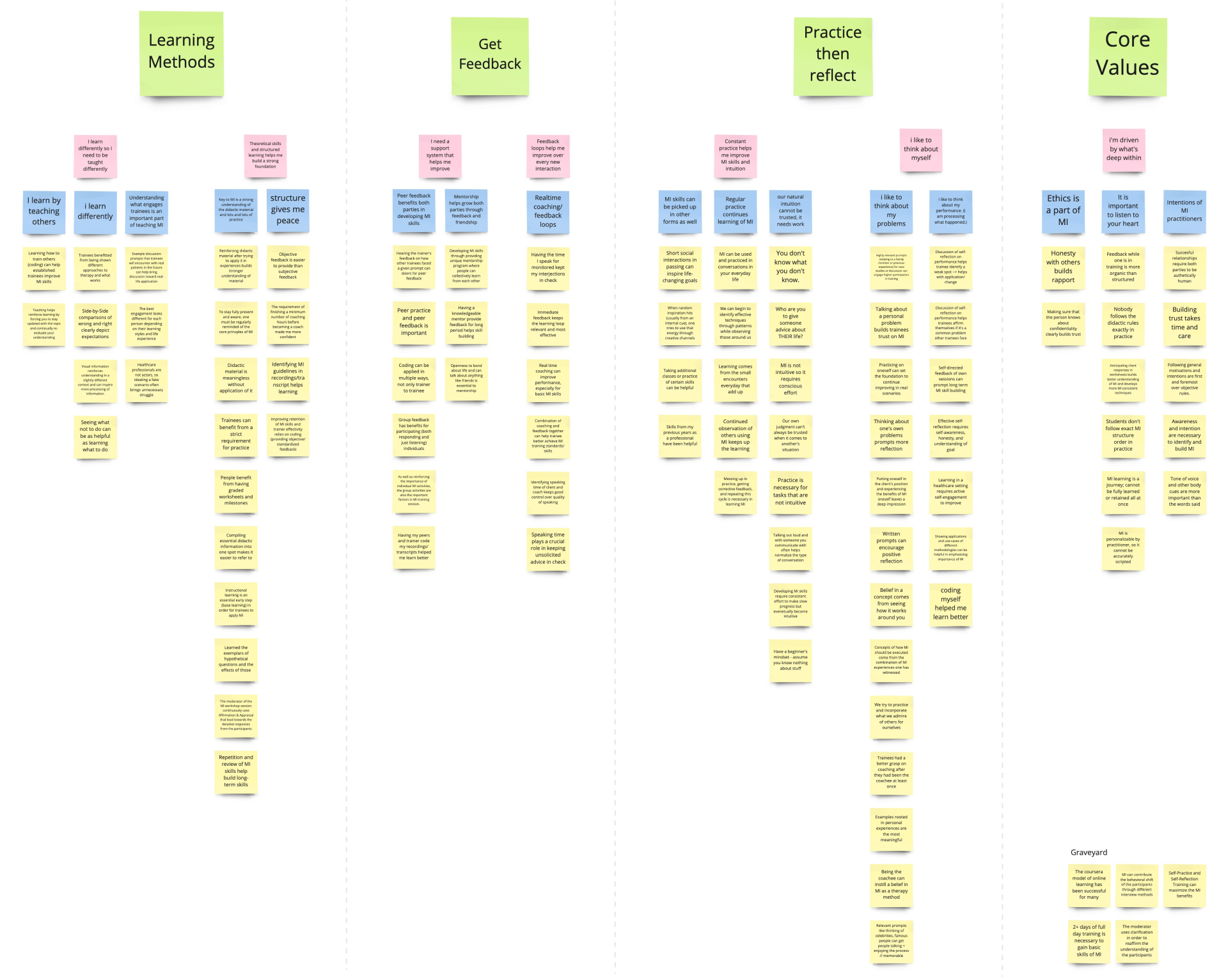
We also derived four persona groups based on the main stakeholders of the project: clients/ patients, MI trainers, and healthcare practitioners.
From the previously stated user research methodologies, our team discovered the following insights:
Insight 1
Everyone learns and retains skills differently. Each trainee at one point needs one-on-one direct coaching and feedback.
Insight 2
Trainees must repeat the cycle of messing up then getting corrective feedback and doing well then getting affirmative feedback.
Insight 3
Regular practice and reflection are necessary because our natural intuition is not enough and needs to be trained.
Insight 4
Motivational Interviewing is more than using a set of technical interventions; it's about following and living by the core principles of MI.
How might we provide low intervention practice, feedback, and self-reflection opportunities for Motivational Interviewing trainees to build core MI skills?
MI trainees need direct feedback on their performance, but the limited MI trainers
are spread thinly in providing one-on-one coaching.
Our team started looking into ways to leverage consistent feedback
opportunities to reduce the need for trainer intervention.
Based on our insights and feedback from our client, we timeboxed ourselves and brainstormed ideas. We grouped them to create categories — these helped us narrow down and combine ideas.

From each category, we narrowed it down 2-3 ideas we wanted to further explore and crafted a corresponding storyboard. These are some of the storyboards I created:
In our speed dating sessions, we presented each storyboard to eight healthcare professionals who have had MI training. We synthesized each session by consolidating notes.

Based on the new findings, we felt the need to bring to light a new persona that captured the feedback from the speed dating sessions.
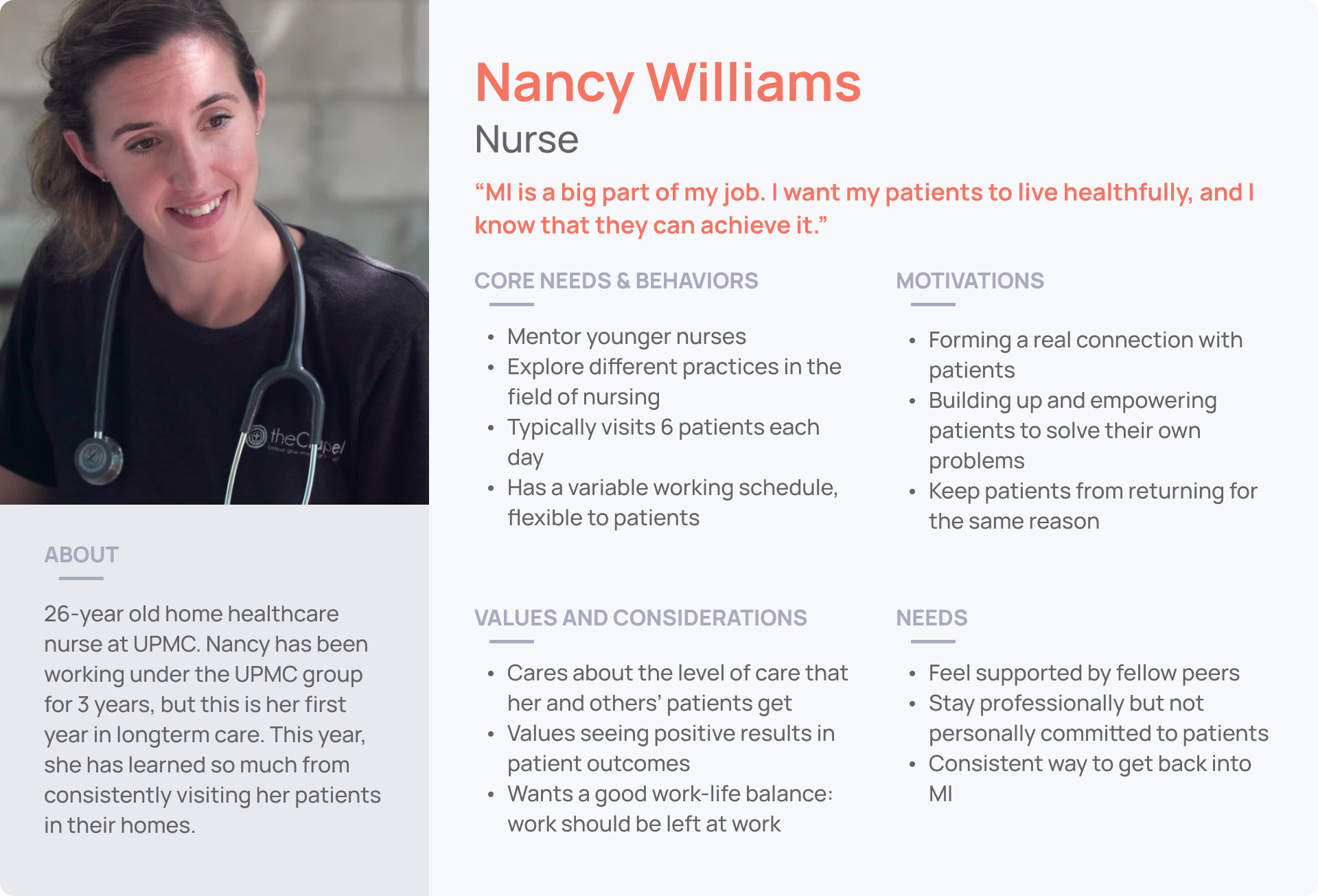
We then revisited the ideas and bundled four ideas based on the yays, nays, and insights from the speed dating session. We then decided on one direction listed below.
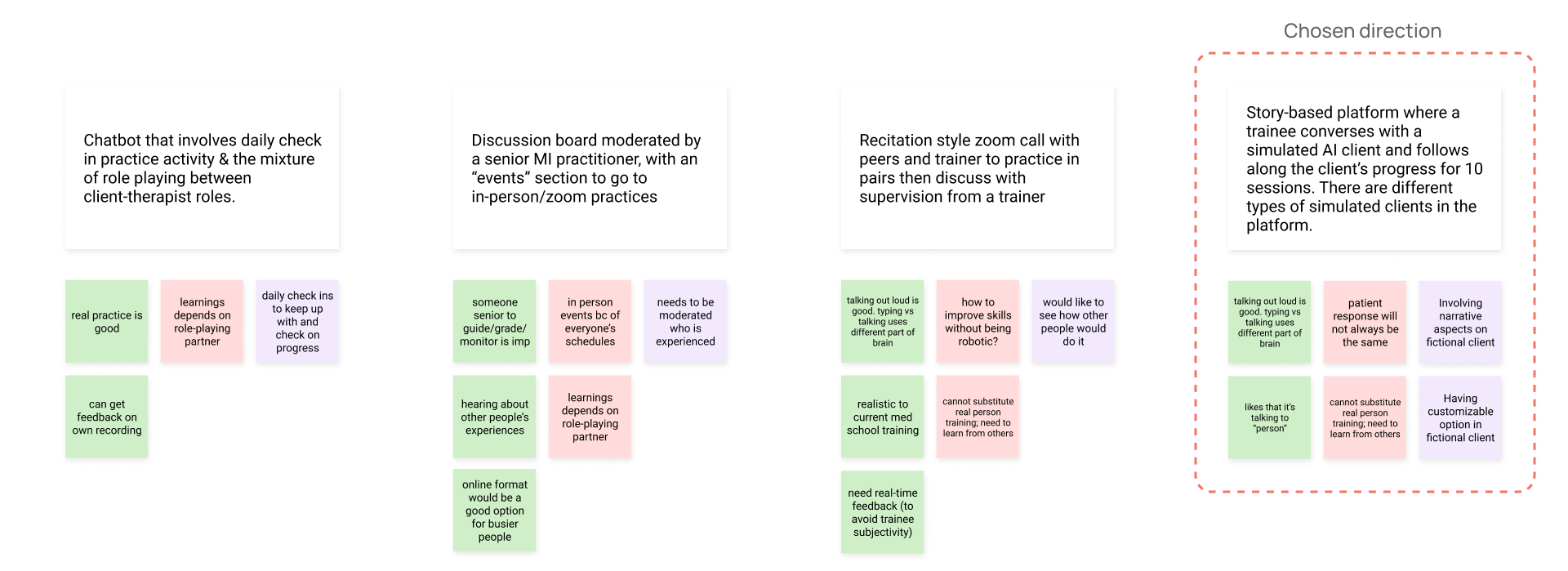
We sketched ideas in parallel then discussed and combined ideas for our low fidelity prototype. Because Pin-MI will be used at work, it will be used on larger screens, such as desktop browsers.
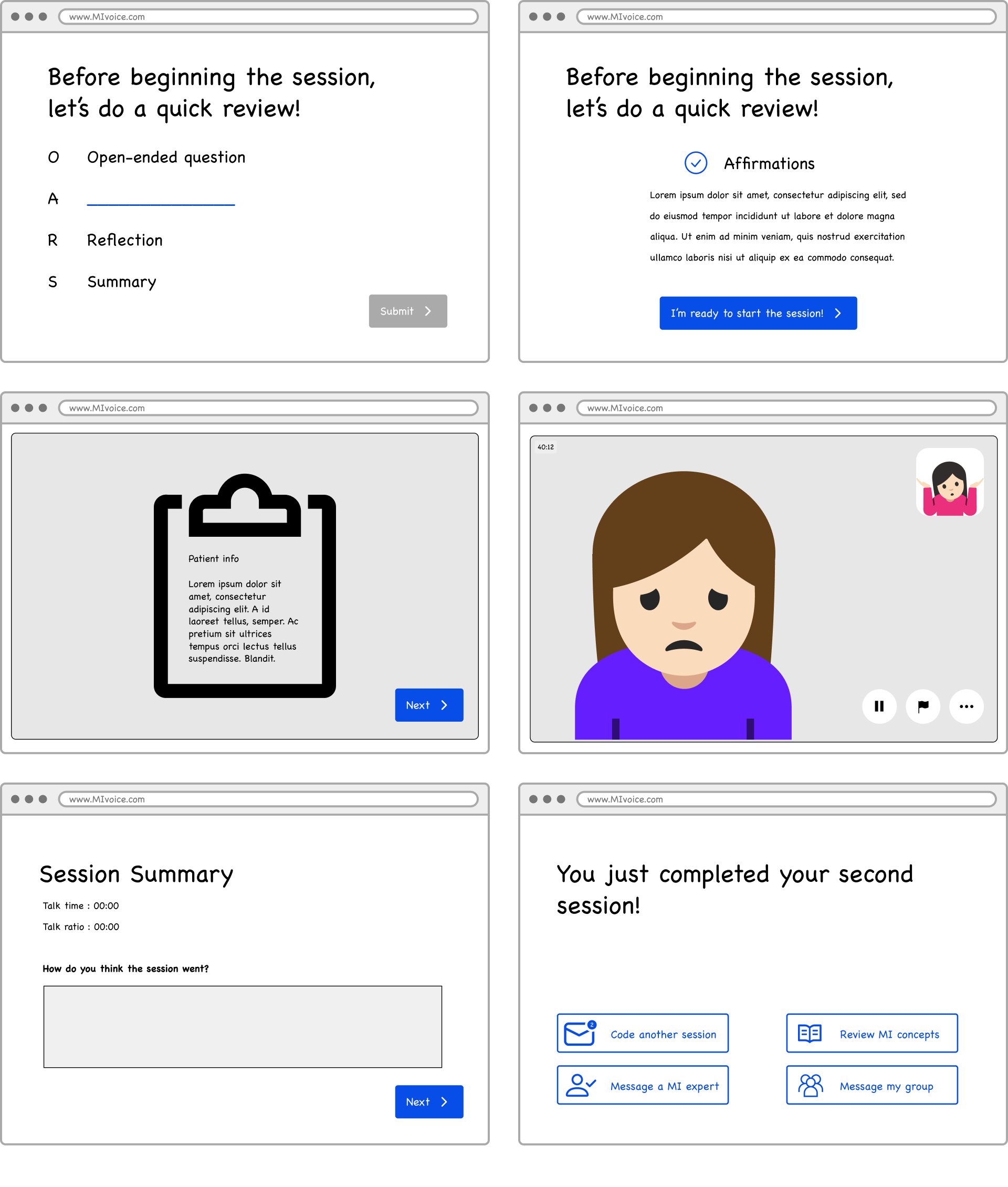
Because it was difficult to have two users test our platform synchronously,
I acted as the patient to simulate
the roleplay practice sessions and discussions. In our final testing,
two users simultaneously roleplayed, one as a patient and the other as a practitioner.
In total, we conducted 20 user testing sessions:
4 for lo-fidelity, 8 for mid-fidelity, and 8 for hi-fidelity.
As seen below, we added steps to the user journey
based on user feedback.
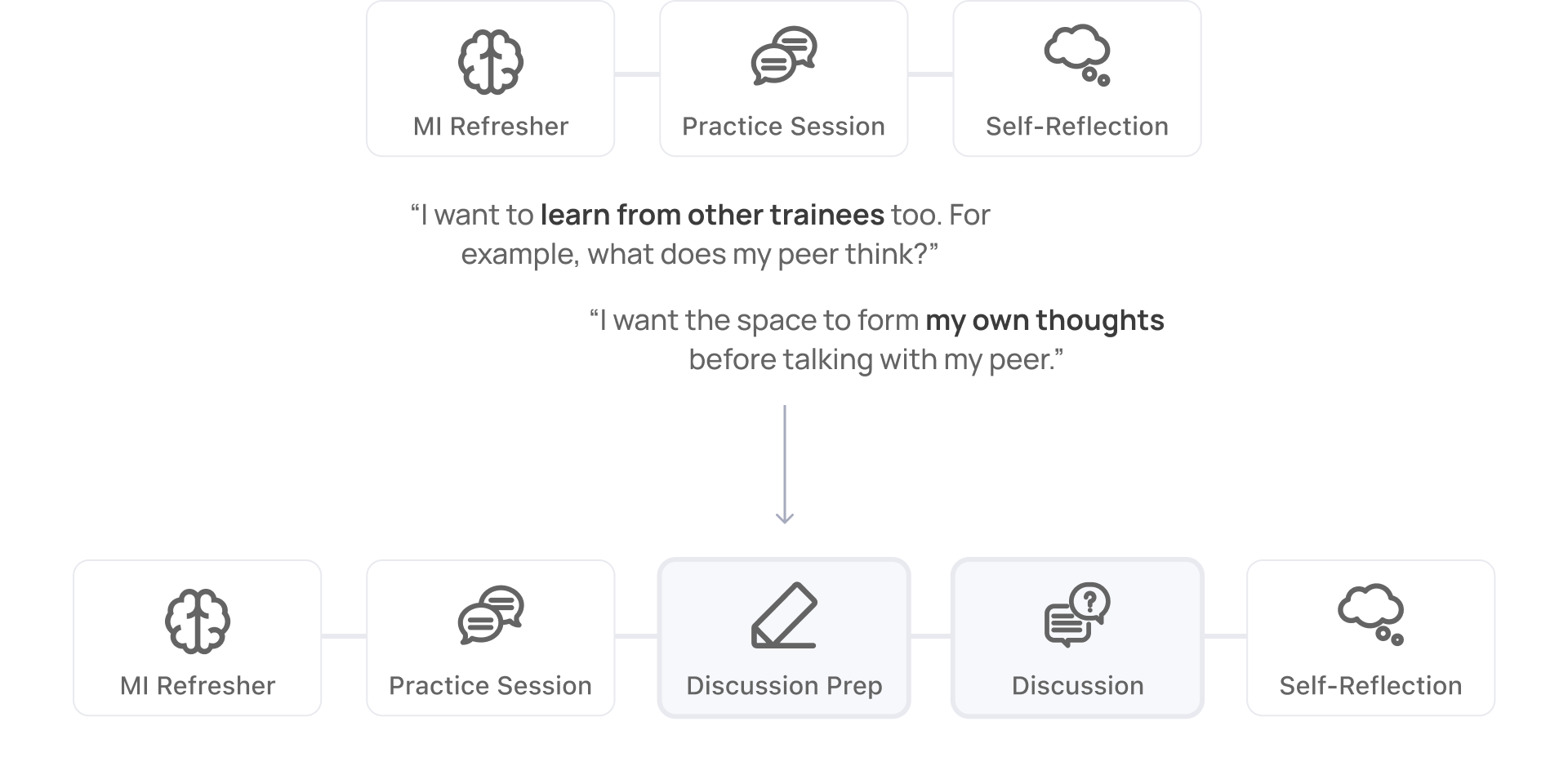
Trainees act as either the practitioner or the patient. They will pin
time marks of interesting uses of MI.
We provided explicit, just-in-time instructions on pinning because many users had trouble figuring out
when to pin.


Trainees discuss pins in real-time and prepare notes
to help structure the discussion.
We coupled related elements tighter because users navigated across pins with difficultly. We also
decreased visual elements to prevent cognitive overload.

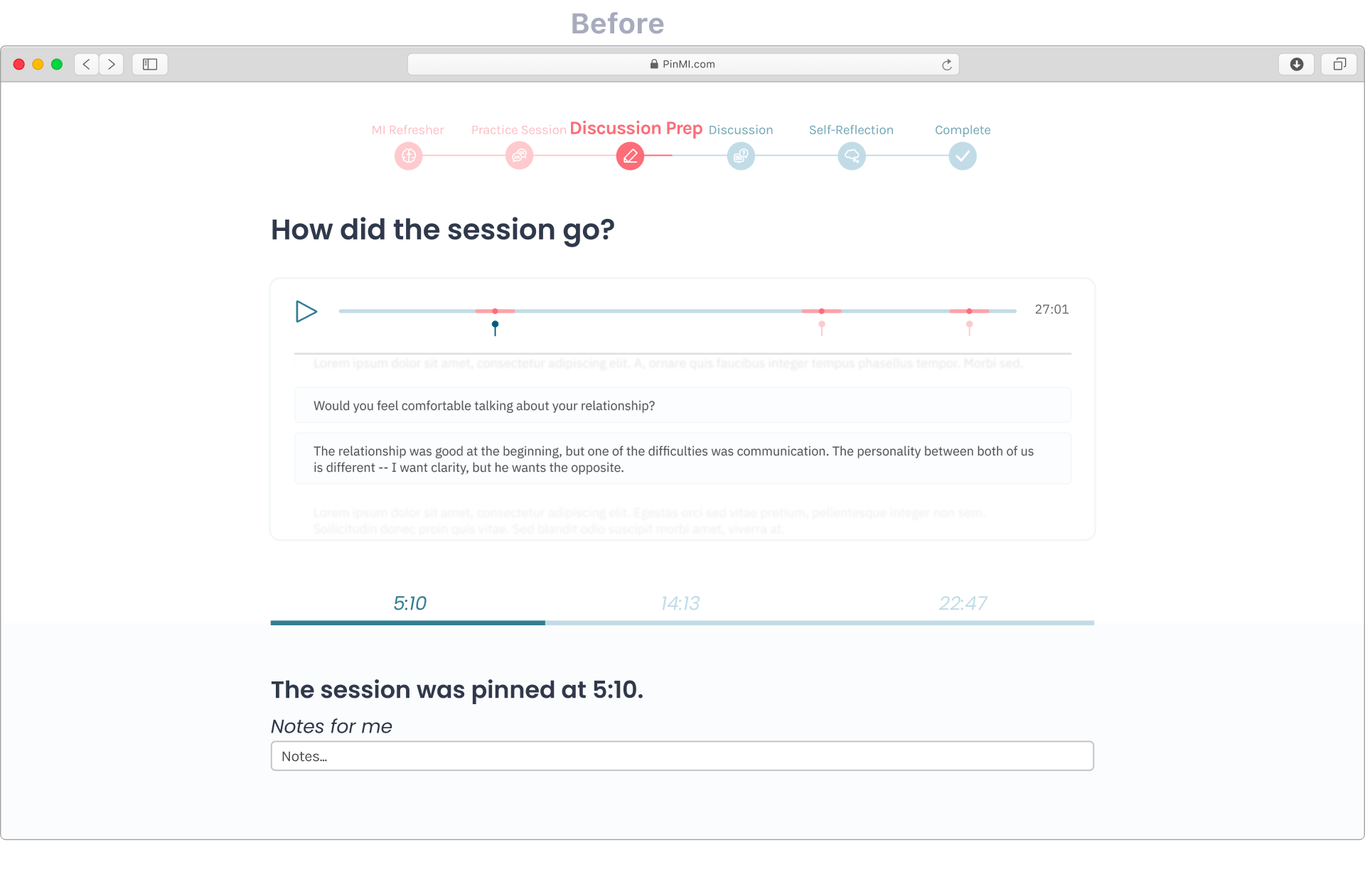
To maintain visual consistency across the team, I established and maintained the design system and implemented these styles as Figma components.
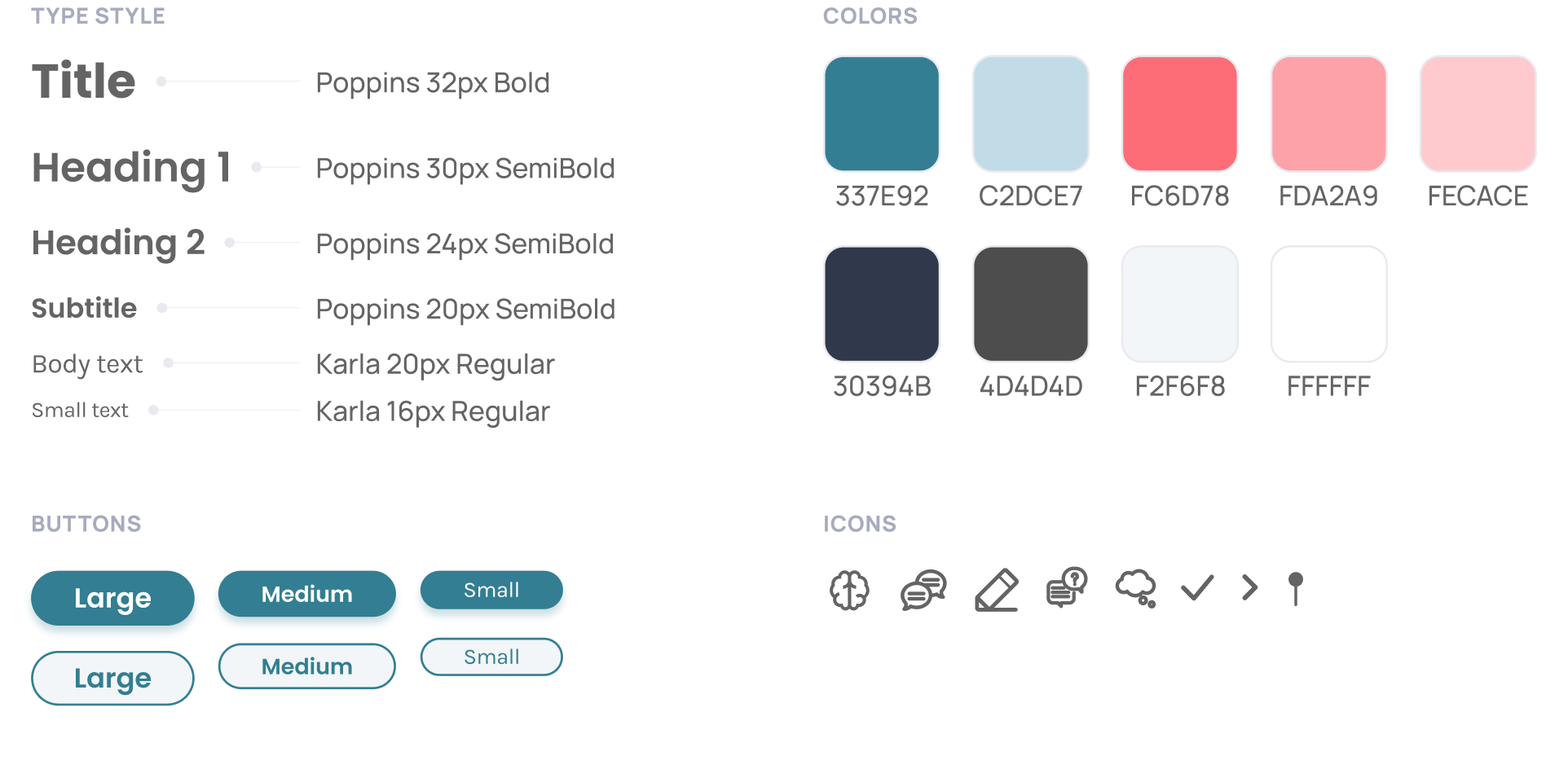
What is Pin-MI?
Pin-MI is a web platform for Motivational Interviewing skills building
within an organization. Peers can practice,
give and receive feedback, and self-reflect on their performance.
Highmark Health will implement this platform for their healthcare professionals. Thus, we
did not focus on creating external incentives to drive platform usage.
Roleplay with a peer
Trainees get info on their role, patient, and pinning.
In the 15-minute session,
Pin-MI reminds trainees to pin or timestamp
interesting MI usages or opportunities.
Prep for the discussion
The trainee adds notes to pins and reviews the recorded session.
Discuss with the peer
The trainee meets their peer again to discuss their notes and reach a shared takeaway from each pin.
Pin-MI has been the most rewarding project I have worked on. I sometimes felt overwhelmed with the amount of work entrusted to me, but I learned three overarching lessons:
Lesson 1
Trust my teammates, admit my shortcomings when I can't do things alone, and ask for help quickly.
Lesson 2
Take risks (like pitching the possibility of using a conversational AI agent) — it's our role to expand what is possible.
Lesson 3
Take more initiative and create a space for myself within the team by knowingly using my strengths.
Say hi to the dream team! We started in four timezones,
but we all made it to Pittsburgh eventually!
